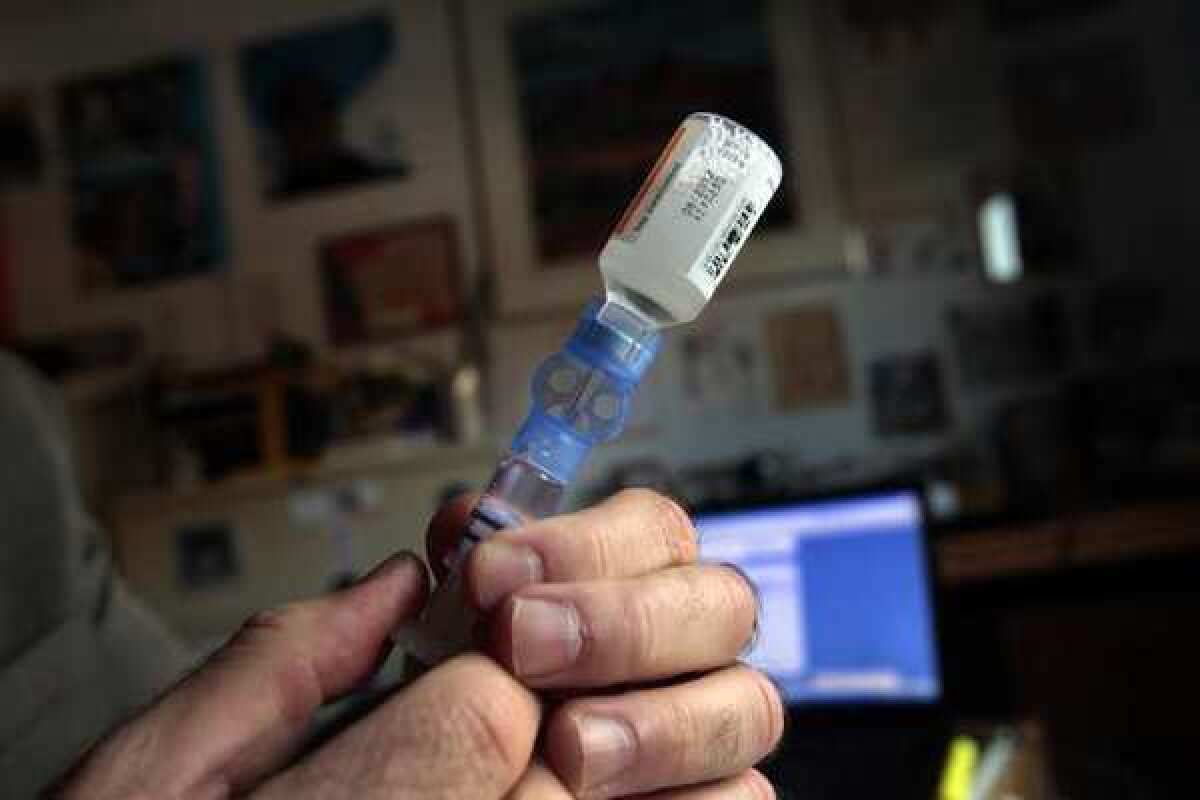Weight-loss surgery: Which patients get best diabetes results?

- Share via
After gastric bypass surgery, people with Type 2 diabetes often see their disease completely disappear — within weeks, before they’ve lost much or any weight.
It doesn’t work for everyone, though. What are the factors that matter? A study by a team of scientists from the University of Massachussetts looked into that. Here are their findings, which were presented at the annual meeting of the American Society for Metabolic and Bariatric Surgery.
The scientists looked at remission of diabetes in 139 patients, ages 48 to 57, who’d had gastric bypass surgery. All had body mass indexes between 33 and 75. The patients were tracked for one year.
When it came to remission, here’s what didn’t matter:
-- What their weight was at the start.
-- Whether they had lost any weight after six weeks or after one year.
And here’s what did matter:
-- Whether their diabetes was so severe they were taking insulin — if so, the chance of recovery was lower.
-- Whether the insulin-producing cells of the pancreas (the beta cells) had reduced function, as measured by something called the glucose disposition index. Patients with a GDI 30% of normal or lower were less likely to recover.
Some numbers: As a group, two weeks after surgery 36% of patients didn’t need diabetes medications anymore. By one year, 67% could go med-free.
Among those who weren’t on insulin and didn’t have that low glucose disposition index, 96% got off their diabetes meds.
In a press release from the bariatric surgery association (the article isn’t yet published), senior author Richard A. Perugini said the findings seem to be saying that they key factor is how far along a person’s diabetes has progressed at the time the surgery was done.
Scientists know that weight loss helps improve diabetes. But how can gastric bypass surgery resolve diabetes before any weight is lost? What’s going on in the body to make that happen? That’s still unclear, but there are some theories.
In the most common type of bypass surgery, known as Roux-N-Y, a stretch of the small intestine, the bit nearest the stomach, is bypassed. And that could be metabolically significant, because the small intestine is far from being just a fleshy tube through which nutrients are passively absorbed. In response to the nutrients, the gut is busy releasing hormones of one stripe or another, with a variety of effects on brain and body.
In one theory, called the “hindgut hypothesis,” the key factor after surgery is the faster delivery of food to farther-along stretches of small intestine. That leads to increased release of certain hormones, such as one called GLP-1.
In another theory — the “foregut hypothesis” — what’s key is the fact that the foregut is bypassed. That supresses the secretion of certain other hormones.
Here’s a study, described in a WebMD article, that suggests changes in levels of certain amino acids could be involved in putting the body to metabolic rights after surgery.
Finally, Thomas H. Maugh II wrote about the various kinds of weight loss surgery in a 2011 Los Angeles Times article. Note that lap band surgery, in which there is no bypass of bits of the small intestine, does not resolve diabetes until significant weight is lost.






